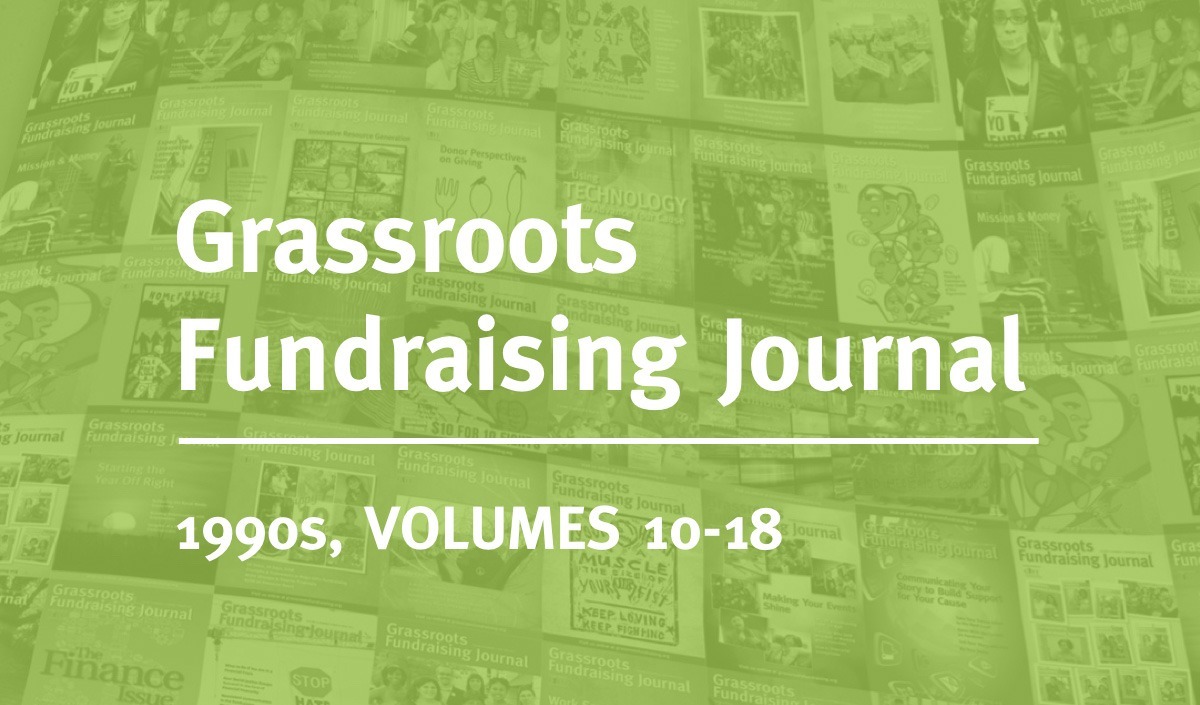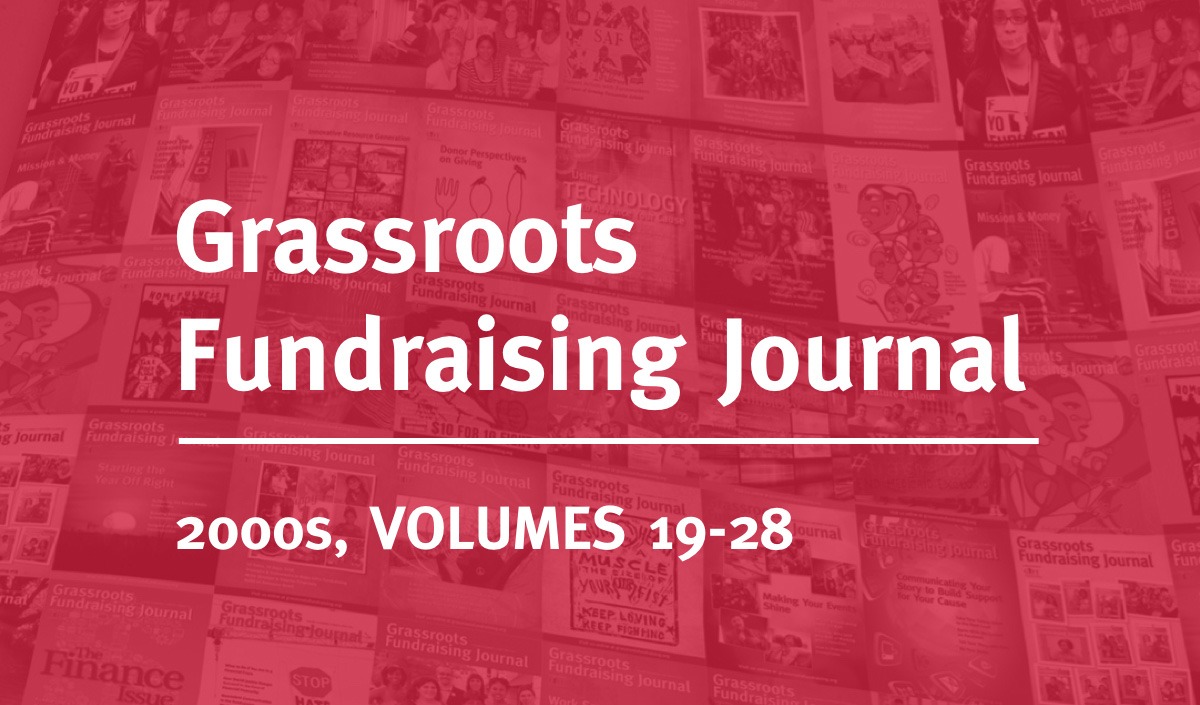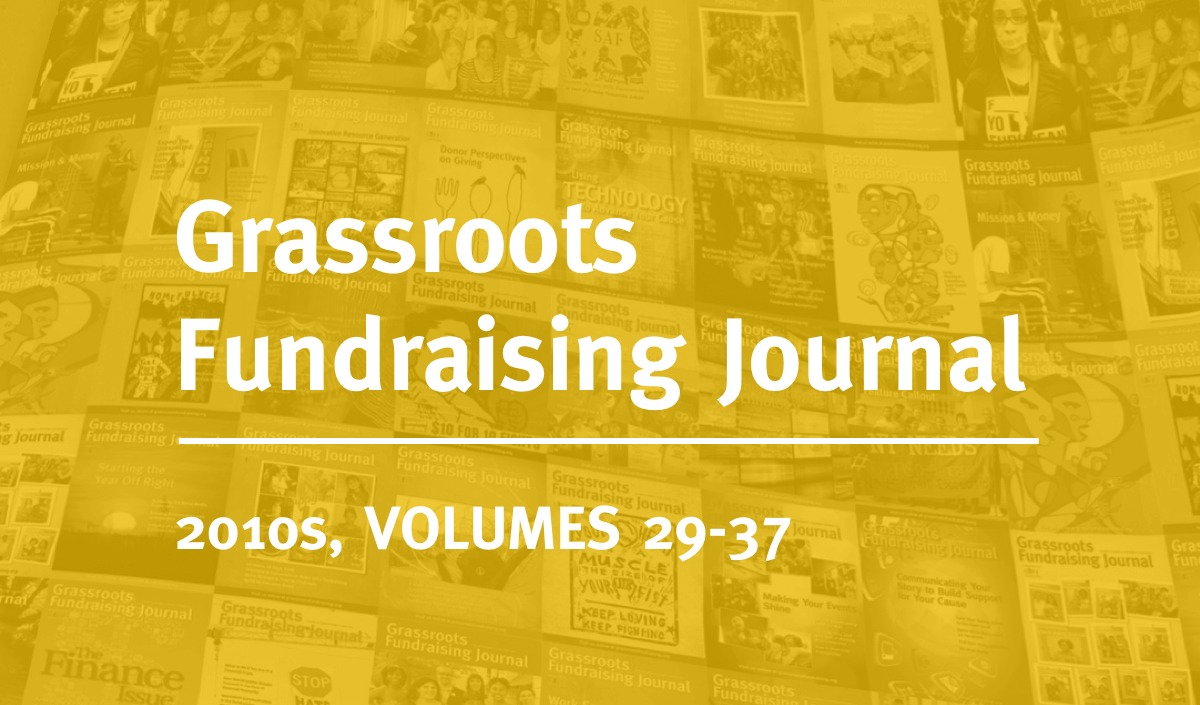
Editors’ note: This article, first published in print during October-1996, has been republished for Nonprofit Quarterly with minor updates.
Last Sunday when I came out of a church service, I saw two young women standing behind an ironing board with voter registration materials and information about an organization working to keep affirmative action California. They were part of the move to defeat Proposition 209, called the “California Civil Rights Initiative” and nicknamed the “California Civil Wrongs Initiative,” on the ballot in 1996. The two women called out to all of us as we came out of church, “Are you registered to vote?” I said I was and went over to their ironing board to see what materials they had. They told me about Prop. 209, and agreed with them that it is an outrageous proposition and that their efforts to defeat it are very important. I had seen their materials before, and so I wished them luck and left.
These enthusiastic and committed women missed a chance with me and with everyone else coming out of church — the chance to raise some money. I have noticed this omission time and again, and want to point out here some ways in which fundraising needs to be one of the things people do in the midst of other organizing, speaking, marching, registering, or other activities.
A fundamental principle of fundraising is that people pay you to do work they cannot do by themselves. In this example, I cannot save affirmative action legislation by myself. I can vote against this proposition and urge my friends to do the same. I can talk about it and march about it, but all of these actions are useless unless I am part of an organized effort with lots of other people acting similarly. In many cases, I don’t have time to march or organize, so I give money instead.
Sign up for our free newsletters
Subscribe to NPQ's newsletters to have our top stories delivered directly to your inbox.
By signing up, you agree to our privacy policy and terms of use, and to receive messages from NPQ and our partners.
We miss hundreds of thousands of opportunities to involve people in our work when we do not ask them to do what is for many people the simplest thing they can do to improve the world: give money. The women registering people to vote needed to ask all of us who are already registered, “Would you like to make a donation to help us defeat Prop. 209? Any amount will help.” They needed to ask anyone that they registered, “Can you also help with a donation today?” Sure, most people will say no or will not say anything, but some will give $1 or the change in their pockets and a few will give more in cash or write a check. When collecting signatures for a cause, there is a rule of thumb that you should get an average of a dime a signature. It is useful to incorporate this thinking into all organizing — every time you mention a group or a cause you are involved in, figure out a way to bring money into the conversation. Think of getting a dime for every mention of the group.
Here are some ways you can do that:
- Wear a T-shirt from your group whenever possible. When people comment on it, tell them they can have one too for a small donation of $25 (or whatever). I have five T-shirts in different colors from a group called SOCM (Save Our Cumberland Mountains). Somebody at my gym asked me if this was an important group to know about because she saw the T-shirt a lot. Since SOCM is in Tennessee and I am in Berkeley, I am fairly certain she is not seeing the T-shirt a lot, but is seeing me in several different colors of it. Nevertheless, I say (truthfully), “It is a very important group,” and I tell her a little bit about it. I say, “If you would like to give, I can send you more information.” “Okay,” she says and gives me her address. She may or may not give, but I have done my part, which is that I have mentioned money.
- At dinner parties, when you are asked what you are doing, tell people how great your group is and how important your work is. Then you can casually mention that you are getting a lot more individual donors and that that kind of support really helps. You don’t need to ask for money at the party — if you are like many of us, most of your friends are already giving, but just mentioning individual gifts reminds people about the importance of giving. You never know when someone will say, “I’m not a member of that group. How much does it cost to join?”
- Consider turning your birthday, anniversary, Christmas/ Hanukkah, etc. into a fundraiser. Your invitations can say, “Instead of presents, please give a gift to Good Group.” How much more stuff do you need? The funny thing is that people will often give more money to the group than they would have spent on a present. It is not always possible to tell people that you want them to give a donation in lieu of a gift, but let that be known about you. Tell people that a friend gave you a wonderful gift — a donation in your name to a group you like. Develop a reputation for that. You will have fewer dust catchers and your groups will be richer.
- Always have brochures, newsletters, and return envelopes about your group with you in your briefcase, at your house, and in your car. That way, you always have materials to hand someone if the topic of your group comes up, which it will because you are going to bring it up.
Remember when you first fall in love? You find ways to mention the name of your lover all the time and to turn the conversation to that person in various subtle and not-so-subtle ways. It does not require effort — in fact not talking about the person requires effort. You can see the same phenomenon when a person has a new grandchild or even a new kitten.
Although it will take more discipline and is probably less thrilling than talking about new love, fundraising needs to be incorporated into your daily conversations. No one will mind and your group will be the richer for it.









